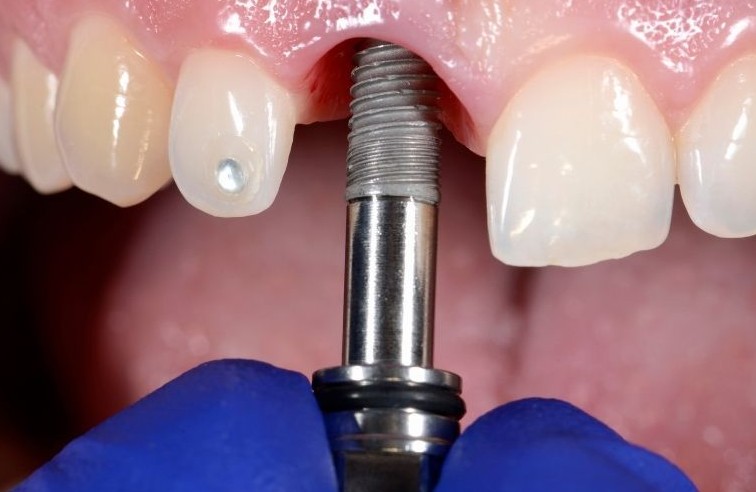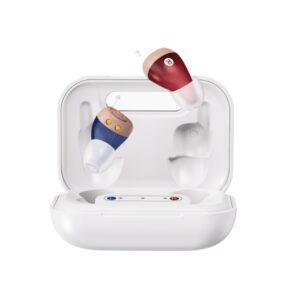
Dental implants have become a popular and effective solution for those looking to replace missing teeth. For many, the idea of investing in dental implants can feel daunting due to concerns about cost and durability.
However, with advancements in technology, affordable dental implants are now accessible to a broader range of patients. One of the most important questions surrounding this option is: how long do these implants last?
This article explores the longevity of affordable dental implants and what factors contribute to their lifespan.
What Are Dental Implants?
Dental implants are artificial tooth roots made from biocompatible materials, typically titanium. They are surgically inserted into the jawbone, where they fuse with the bone to provide a stable foundation for replacement teeth, such as crowns or bridges.
- Implant Structure: Each dental implant consists of three parts: the implant itself (which is inserted into the jawbone), an abutment (which connects the implant to the replacement tooth), and the dental crown (which serves as the visible part of the tooth).
- Natural Feel and Function: Dental implants are designed to look and function like natural teeth, offering a long-term solution for those who have lost one or more teeth due to injury, decay, or other issues.
Longevity of Dental Implants
When properly cared for, dental implants can last decades. Some patients even find that their implants last a lifetime. However, several factors play a role in determining how long affordable dental implants will remain functional.
Factors Influencing Implant Longevity
- Oral Hygiene: Like natural teeth, dental implants require regular brushing, flossing, and professional cleanings. Poor oral hygiene can lead to gum disease, which affects the surrounding bone and tissue and could jeopardize the stability of the implant.
- Bone Health: The success of a dental implant depends on the health of the jawbone. Over time, bone density can change, which may impact how well the implant stays in place. Regular check-ups with your dentist will ensure that your implants remain secure.
- Lifestyle Choices: Smoking and excessive alcohol consumption can significantly reduce the longevity of dental implants. These habits can slow down the healing process after surgery and increase the risk of implant failure.
- Material Quality: Affordable dental implants do not necessarily mean lower quality. Many cost-effective implant options are made from durable materials such as titanium, which is known for its strength and compatibility with the human body.
Average Lifespan of Affordable Dental Implants
The average lifespan of dental implants ranges from 15 to 25 years, depending on the individual’s oral care routine and overall health. With proper maintenance, some patients may even keep their implants for over 30 years.
- Crown Replacement: While the implant itself can last a lifetime, the dental crown placed on top of it may need replacement after 10 to 15 years due to wear and tear. The frequency of replacement depends on factors such as biting force and the type of material used for the crown.
- Abutment Maintenance: The abutment, which connects the crown to the implant, is also durable but may require replacement if it shows signs of wear over time. Routine dental visits can help detect any potential issues early on.
Caring for Your Dental Implants
Proper care is essential to maximizing the longevity of your dental implants. Maintaining a healthy mouth will not only prolong the life of the implants but also ensure that surrounding teeth and gums remain in good condition.
Daily Oral Hygiene
- Brushing: Brush your teeth twice daily with a soft-bristled toothbrush and non-abrasive toothpaste. Be sure to clean all sides of your implants thoroughly to remove plaque buildup.
- Flossing: Floss daily to remove food particles and plaque from between your teeth and around the implant. Some dentists recommend using an implant-specific floss or water flosser for more effective cleaning.
- Mouthwash: An antibacterial mouthwash can help reduce bacteria in the mouth and prevent gum disease, which can affect the health of your implants.
Regular Dental Check-ups
- Professional Cleanings: Regular visits to your dentist are crucial for keeping your implants clean and free from tartar. During these check-ups, your dentist can also monitor the condition of the implants and surrounding tissues.
- X-rays and Assessments: Periodic X-rays may be needed to ensure the bone around the implant is healthy and that the implant remains securely in place. If any problems arise, early detection can prevent more significant issues down the line.
Avoiding Harmful Habits
- Quit Smoking: Smoking is one of the leading factors in implant failure. Quitting smoking will improve your oral and overall health, giving your dental implants a better chance of lasting longer.
- Limit Grinding: If you grind your teeth, particularly at night, your dentist may recommend wearing a mouthguard to protect your implants and natural teeth from damage.
Conclusion
Affordable dental implants offer a long-term, effective solution for those seeking to restore their smiles without breaking the bank. While their lifespan can vary depending on factors like oral hygiene, lifestyle habits, and bone health, implants can last for decades with proper care.
To maximize the longevity of your affordable dental implants, it’s essential to maintain good oral hygiene, visit your dentist regularly, and avoid habits that could damage the implants. By doing so, you can enjoy the benefits of your implants for many years to come.








